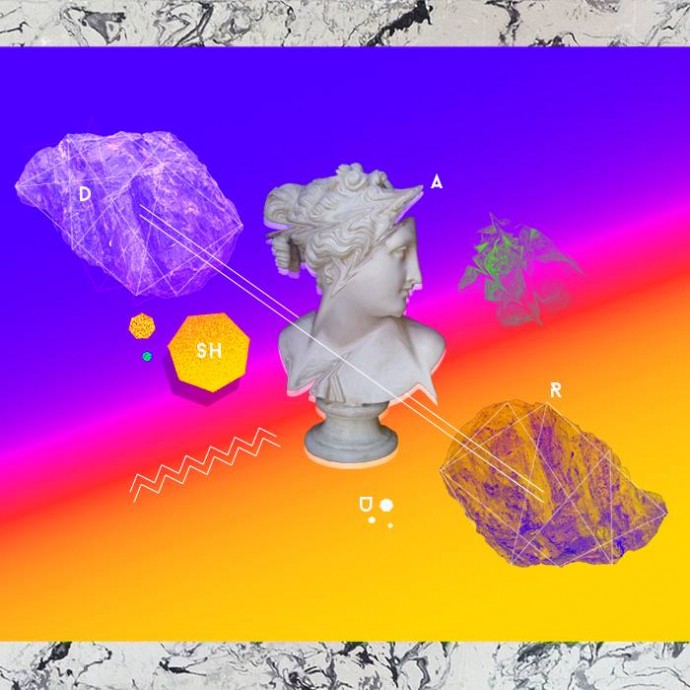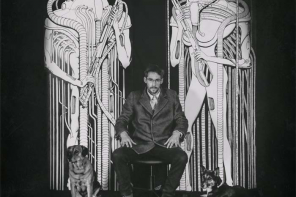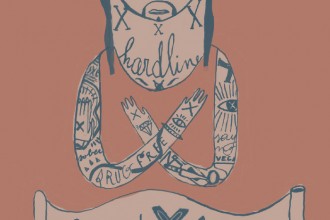The techno scene is mostly associated with male artists. Let’s just say, it’s not for pussies. When a female producer is discussed on web magazines and blogs, there is always an aspect of “She’s hot, but so what?” Is there still gender discrimination in this field, or is it all about professionalism and talent? A girl playing live sets behind the Tresor’s bars seems to know what techno music is about. Sensa Nostra talks to Dasha Rush, techno producer of her own label, Fullpanda, and a Dj with various artistic collaborations. She also organizes her own parties, called All You Need Is Ears, at Berlin’s legendary Tresor. We talked to Dasha about stereotypes and prejudices, sexism and other discrimination nonsense.
I have lived and worked in different corners of the world, where I’ve met people of various backgrounds, beliefs, and genders. Today I work and live in Berlin. Before moving here I spent fifteen years in Paris. Originally I come from Moscow. I play worldwide and thus experience a lot difference and contradiction which come from both cultural peculiarities and general ignorance.
Intolerance towards genders and minorities, as well as stereotypes about different nationalities, have always existed. There are certain historical and political reasons for that. To me it is just a matter of awareness and education. Of course I’ve heard jokes about how Russians are always drunk and how Eastern European women are prostitutes. Well, there have always been idiots among us, and I personally don’t bother to react to this kind of humor. Some people simply need to fill the empty space around them, and an effort to be both funny and sophisticated is just too much to expect.
I think that the ongoing discussion about whether women in the club scene act differently, or whether they are appreciated for some other reasons than men are, is becoming rather trite. Nevertheless, much is being written and reviewed, and sometimes I feel like certain things appear only because people have nothing better to talk about. However, one has to take into account that there is a difference between female artist feeling discounted and girls behind a turntable being called “too sexy.” I believe that it depends on the seriousness and professionalism of people who want to bring up these points. There are, for example, organizations like Female Pressure, whose aim is to organize a certain platform for female artists. But at the same time there are people who produce programs that discuss sizes and shapes of bottoms of women in a music scene. So I think that, given the access to information available nowadays, audiences should be able to make sober judgments about whether certain news is reliable or whether it is just more filthy gossip.
I personally do not feel any oppression being a woman in techno. I guess that once you realize what you want to become and set your priorities, nothing but the production of your work matters. When I first got involved with the music-making process, I was listening to a lot of records and felt that I wanted to do more. I was asking around to see and learn how things work, was making friends teach me how to work with a turntable. To be honest, I was receiving a lot of skepticism. This did not weaken my interest, though, but only made me more curious. And what I really learned in the end was that you have to believe in what you are creating, work on skills, master techniques, and eventually people will perceive you as an artist, a producer, a professional—and not as a blonde female or whatever all those sexist cliches are about.
When an artist’s working process is exciting and productive, nobody considers their gender. Surely, there is a difference between a man or a woman as an artist, because men and women are different in their nature. Their perceptions of the world as well as their sensualities are not the same. There are lots of female artists and Djs in the club scene nowadays, and I don’t think that gender issues should still be discussed.
What really differs is the attitude towards club business in different countries. Some cities deal with electronic music scenes on a purely commercial level, and this is when you have to fight for your rights to be an artist and not an entertainer. Besides, even the world of underground music has strict rules and laws which one must follow. Sometimes, in order to survive in the tough conditions of booking and releasing, you need to have balls. Well, apparently you don’t necessarily have to be a man for that.
I think it is totally fine for a woman to look sexy if she wants to. Normally, women expose sexuality because it is a part of them, part of their nature. And that is fine. As long as someone makes music or is involved in any other creative processes, it is natural to explore and uncover yourself. Anyway, there are also cases when women exploit sexuality.
The line between ‘expose’ and ‘exploit’ is very vague. And it all depends on what the media wants to accentuate and how much drama is expected. For example, giving an interview sitting in a bathtub might be an option. But public opinion is a tricky thing. A short scene filmed in a bath may turn a woman into a whore. I think that nobody should be afraid to be sexy in their own vision of being sexy. In the end, the things that a person creates are important, and when the final result is good—then it is all worth it. So I don’t think that sexuality should be a problem. Views on beauty and aesthetics are subjective; they depend on cultural surroundings and social values. At the end of the day, only the product of your work matters. An interview, a blog discussion, or a comment will be forgotten. But a nice track, a song, or performance that audiences enjoyed and lived through together with an artist—those will be remembered.
The late Soviet-era society in which I grew up definitely set certain restrictions on a person. Even today, difference is not warmly welcome in Russia. But at the same time, in some cases, it is probably even more appreciated. There is not much drama about that, I guess. I don’t like to dramatize, because I realize that a society which was closed for so many years needs time to open up and be able to breathe again. It is all about experience and acceptance. I was lucky with my parents, who were quite liberal and gave me enough freedom to experiment. I never felt like hiding something or suppressing my sexuality. These days, my teenage son comes home and sometimes claims that he must be gay. Another day he tells me about his new girlfriend. I think it is beautiful when people are given a chance to express themselves. This is why we have to learn to accept each other the way we are, and finally realize that the world is so diverse that there must be enough space for everyone.
Discrimination has always been out there. There were always people undergoing oppression. Which also means that there always has been someone who wants or needs to stand out. Anyone may be discriminated: homosexuals, immigrants, or sexy girls, for example. All the intolerance is based on judgments, prejudices, or complexes. And that is why it is important to spot the bigots and not let them spread the poison.
I enjoy the surroundings in which I work and live. In Berlin, I do not get judged for who I am, and in return I try to be open-minded and tolerant. When I have to step back to fight with my artistic crises, I do this in my studio. When I have to step forward to fight against the abuse of human rights, I do this in my techno set . And I do both, first of all, not as a female or a heterosexual—I do it as an artist, a producer, and a passionate lover of music.







